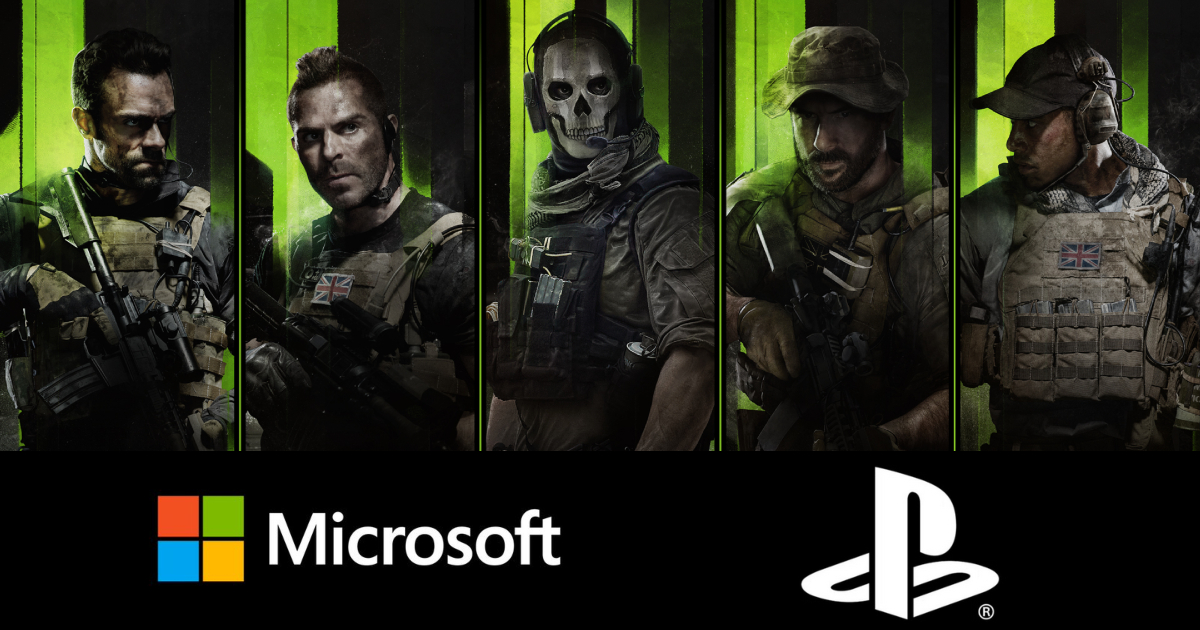Microsoft rejects UK regulator's divestment proposal. Sony wants CoD to "remain in independent hands"
Microsoft and Sony have responded to the provisional findings of the UK’s Competition and Markets Authority. The main stumbling blocks are the potential exclusivity of Call of Duty and the impact of the Activision Blizzard deal on consoles and subscription services.

Microsoft continues to insist that the Activision Blizzard deal will benefit players and bolster competition
Last month, Microsoft filed its response to the CMA’s provisional findings and proposed remedies in the Activision Blizzard deal. The UK regulator made the 33-page document public on March 8.
- Microsoft has not intention of making Call of Duty exclusive to the Xbox platform. The franchise will still be available on PlayStation and PC, as well as appearing on Nintendo and Nvidia platforms as part of new 10-year agreements.
- As part of the proposed remedies, the company is guaranteeing quality and content parity between the PlayStation and Xbox platforms to “protect all CoD gamers in the UK, as well as the incentives to invest and innovate.”
- Microsoft believes that prohibition of the merger is “wholly unjustified” given that the main concerns relate to only one franchise and its position on consoles and cloud gaming services in the UK.
- The company also doesn’t agree with the CMA’s proposed remedy to acquire only a part of Activision Blizzard (without Call of Duty or without the entire Activision segment). Microsoft doesn’t want to lose any mobile IPs owned by Activision Blizzard, including CoD: Mobile, Diablo Immortal, and Hearthstone.
- “A divestment would have severe adverse effects on the development of competition because it would prevent Microsoft from achieving its key strategic objective, namely building a mobile gaming business with sufficient scale in order to challenge Google and Apple,” the text reads.
- In conclusion, Microsoft proposed a package of licensing remedies such as “guarantee parity between the PlayStation and Xbox platforms in respect of CoD” and “ensure wide availability of CoD and other Activision titles on cloud gaming services.”
- According to Microsoft, the merger will result in lower prices, higher quality, and greater choice for consumers in the console, PC, mobile, and cloud markets.
- The company also insisted that Game Pass prices won’t increase post-acquisition. It also believes that adding Activision Blizzard games to Game Pass at launch will spur Sony to invest in its own subscription service.
Sony considers the merger antitrust, calling on the CMA to block it
The CMA also released Sony’s 13-page response to the proposed remedies. The Japanese publisher once again expressed skepticism over the deal and called for the acquisition to be blocked.
- SIE believes that prohibiting the merger would “safeguard against the foreclosure strategies Microsoft could employ to withhold or degrade access to Activision content.”
- The company also agreed with the CMA’s proposed divestment remedies because they would ensure that critical Activision Blizzard content such as Call of Duty or World of Warcraft “would remain in independent hands.”
- Sony expressed its concerns over the quality of future CoD releases and Microsoft’s potential intent to degrade game content on PlayStation.
- “Microsoft might release a PlayStation version of Call of Duty where bugs and errors emerge only on the game’s final level or after later updates. Even if such degradations could be swiftly detected, any remedy would likely come too late, by which time the gaming community would have lost confidence in PlayStation as a go-to venue to play Call of Duty,” the document reads.
- SIE is afraid that the merger would result in Microsoft preventing Call of Duty from appearing on PlayStation Plus. However, in its own response, Microsoft insisted that any CoD game could be included in Sony’s subscription service “at the same time and for the same duration.”
- The company is also skeptical that an agreement with Microsoft “could be reached, much less monitored and enforced effectively.” It also thinks that “there is no realistic prospect of such an agreement being reached that would maintain effective competition.”
The CMA has until April 26 to make its final ruling on the Activision Blizzard deal.